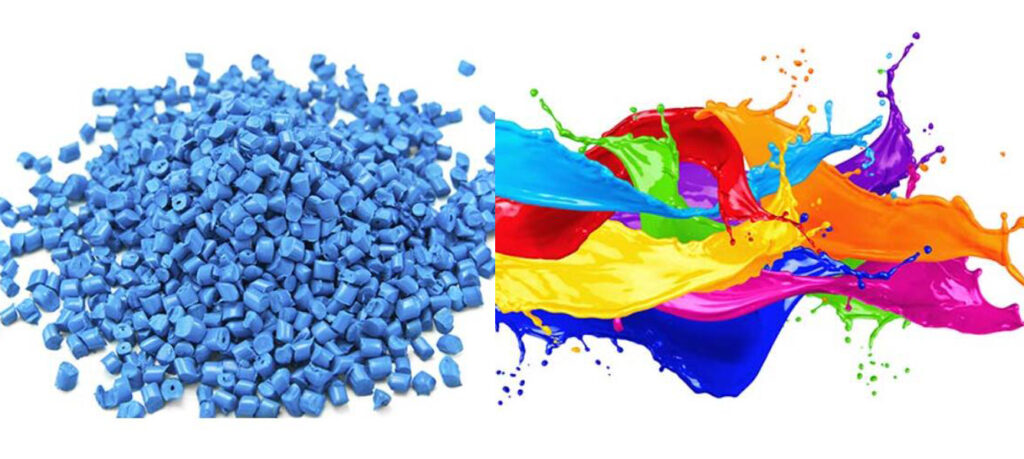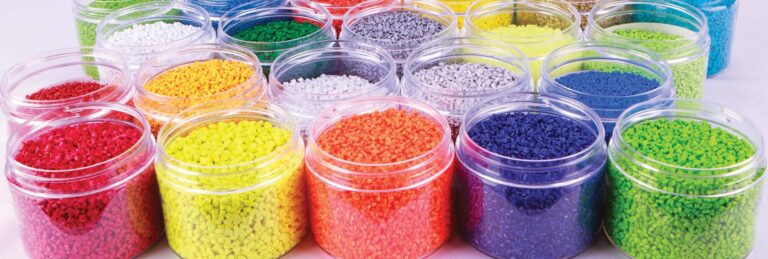In the realm of plastic manufacturing, particularly in injection molding and extrusion, selecting the right coloring agents—masterbatch, pigment powder, and pigment oil—is crucial for achieving desired product quality and aesthetic appeal. Each of these additives plays a vital role in the coloration process, possessing distinct advantages and applications. Here’s a comprehensive overview of these coloring agents:

Masterbatch
Advantages:
- Excellent Pre-dispersion: The pigments in masterbatches are pre-dispersed in a carrier resin, which ensures a uniform distribution of color throughout the plastic product.
- Ease of Use and Cleanliness: Masterbatch comes in pellet form, making it easy to measure and mix while minimizing dust and waste.
- Compatibility: Masterbatches are designed to be compatible with specific resin systems, ensuring the stability of both the physical and chemical properties of the plastic.
Disadvantages:
- Higher Cost: Due to its complex production process, masterbatch tends to be more expensive compared to other coloring options.
- Storage Requirements: Masterbatches must be stored properly to prevent moisture absorption and agglomeration that could affect their performance.
Applications:
- Widely used in plastic injection molding and extrusion processes, masterbatches are ideal for manufacturing high-volume, color-consistent products such as toys, household appliance casings, and automotive parts.
Pigment Powder
Advantages:
- Cost-Effective: Pigment powders are among the most economical coloring options, suitable for applications with limited budgets.
- Wide Color Variety: They offer a broad range of colors, allowing manufacturers to custom-mix hues as needed.
Disadvantages:
- Poor Dispersion: Directly mixing pigment powders into plastic can lead to uneven color distribution, requiring careful control during the blending process.
- Work Environment Concerns: The dust generated can impact the work environment and the health of the workforce, necessitating proper dust control measures.
Applications:
- Suitable for small-scale production or specialized products that require personalized coloration, such as artistic plastic items or prototype developments.
Pigment Oil (Color Paste)
Advantages:
- Ease of Mixing: Pigment oils disperse well within plastics, blending quickly and evenly with the resin.
- Flexible Color Control: The amount added can be adjusted easily, allowing for precise color matching.
Disadvantages:
- Physical Property Impact: Excessive use of pigment oil can affect the mechanical strength and thermal stability of plastic products.
- Complex Storage and Handling: Being liquid, pigment oils require careful storage to prevent leaks and evaporation.
Applications:
- Primarily used for products that require precise color control or special effects, such as transparent or semi-transparent packaging materials and medical supplies.
For producers engaged in plastic injection molding and extrusion, masterbatch is the most commonly recommended due to its operational convenience and consistency in color quality. Pigment powders and oils, while less common, cater to specific needs for small batches or specialty products. Proper selection and application of these coloring agents not only enhance the quality of the products but also bolster their market competitiveness.



